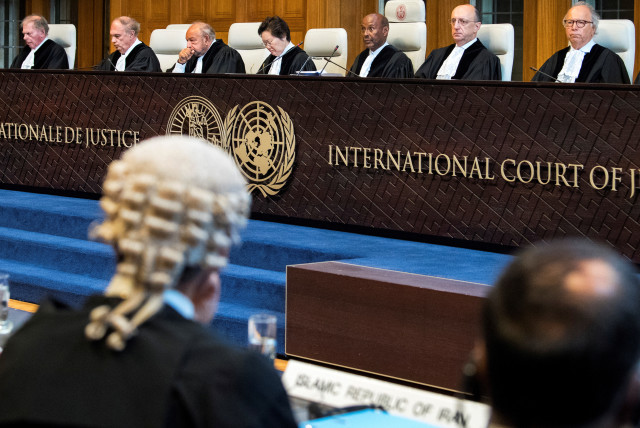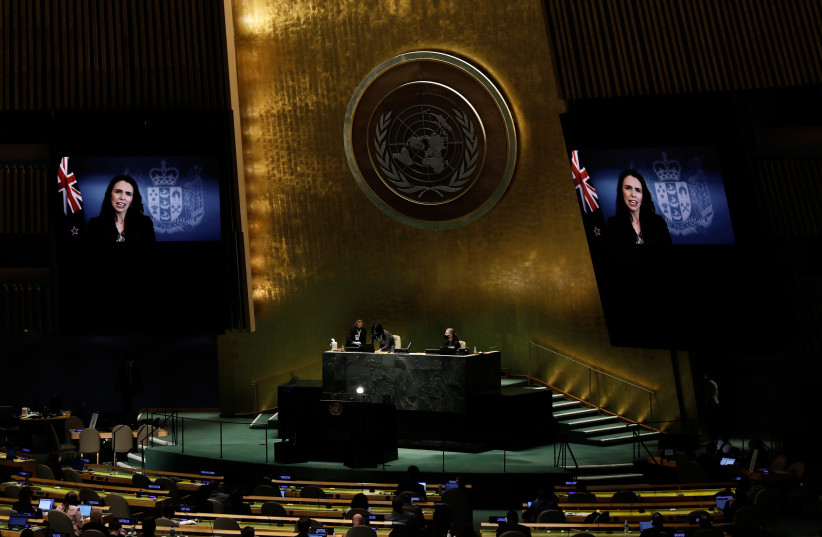Israel's Netanyahu blames Bennett, Lapid for ICJ vote

The initiative to seek an advisory opinion was sparked by a report of the UNHRC’s Commission of Inquiry created in May 2021, when Netanyahu was in office
Prime Minister Benjamin Netanyahu blamed the past government for the United Nations General Assembly’s vote to seek an advisory opinion from the International Court of Justice with respect to the legality of Israel’s “occupation.”
“Only after I entered [the Prime Minister’s Office] did we succeed in swaying some countries to vote in our favor,” Netanyahu said.
The past government, which had been led first by former prime minister Naftali Bennett and then by his successor Yair Lapid, “had an entire year to deal with thePalestinian campaign at the UN,” Netanyahu told his faction during its monthly meeting.
The UNGA vote to question the legality of the Israeli "occupation"
The initial UNGA vote, taken on November 11, after Netanyahu won the election but before this government had been sworn in, had been 98-17, with 52 abstentions.
The final vote taken on Friday night, just one day after he was sworn in, was 87-26, with 53 abstention.

The Palestinians lost the support of 11 nations and Israel gained the backing of nine. In the first vote count, the Palestinians had the majority support of 193 of the UNGA’s member states, while the December 30th vote, the Palestinians had the support of less than half of the global assembly.
The resolution passed anyway because the only count that matters is the number of those who back the resolution compared to those who oppose it.
The initiative to seek an advisory opinion, however, was sparked by a report of theUnited Nations Human Rights Council’s Commission of Inquiry that was created in May of 2021, when Netanyahu was in office.
Netanyahu was not able to halt the formation of that committee, which has a permanent mandate to investigate Israel and is expected to explore the question of whether the Jewish state is guilty of the crime of apartheid.
Former foreign minister Alan Baker downplayed the significance of an ICJ advisory opinion, in a conversation he had Monday with reporters at an event sponsored by Media Central.
Israel sees the ruling as an effective "public relations stunt" by the Palestinian Authority, Baker said.
He believed, Baker said, that the court, which will issue a non-binding opinion, "will be very hesitant to step into a minefield" and will be cautious in its approach.
"The court will steer clear of recommending sharply worded recommendations and will try to come to some kind of a reasonable compromise that could be acceptable to everyone including Israel and the Palestinians," Baker said.
He pointed to the makeup of the court, which is headed by an American jurist, and whose 15-member panel includes judges from Israeli allies such as Germany, Japan, India, France, Australia and Brazil.
Baker said he was of the opinion that the Oslo Accords of the 1990s, to which both Israel and the Palestinian Authority were signatories, helped strengthen Israel's argument that its presence in the West Bank was legal.
The Oslo Accords remain valid and serve as the legal basis for the functioning of the Palestinian Authority, Baker said.
"The Court won't be able to ignore the fact that there is an agreed administration in these territories pending further negotiation on the permanent status of the territories," he said.
The court will have to acknowledge the "basic legality of Israel's presence in the territories, the fact it is agreed upon by the Israelis the Palestinians," he said.









.jpeg)
Comments
Post a Comment